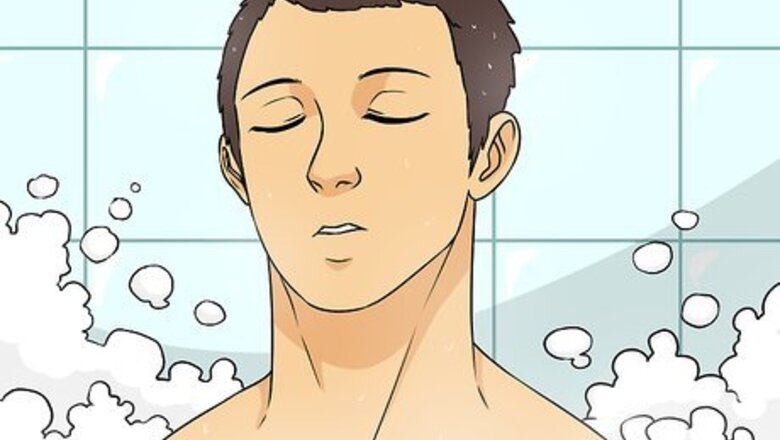
views
Getting Quick Relief
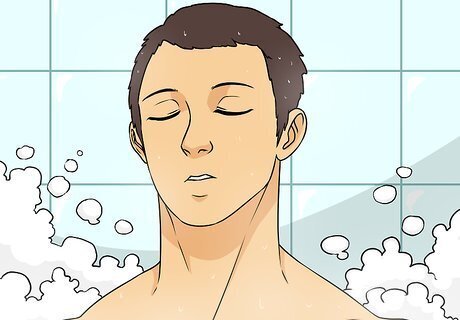
Breathe in some steam to soothe your ears quickly. Set up a humidifier in your room, or take a hot, steaming bath or shower. Immerse yourself in the steamy area and breathe deeply for several minutes, or until you feel the pain going away. This is especially helpful if your earache is caused by a cold.
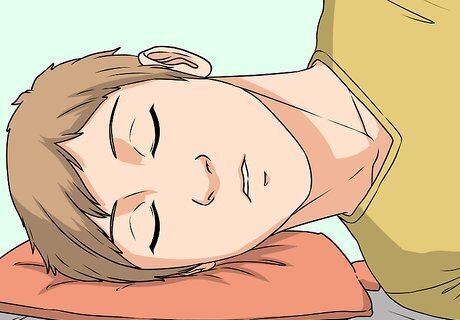
Lay your ear on a heating pad to ease the pain. Set out a warm heating pad or flannel on a pillow or other comfortable surface, then lie down with your affected ear touching the pad. Lie down for several minutes, or until you feel your symptoms improve. You can also use a chilled flannel for this. You can find flannels or heating pads online, or at your local pharmacy.
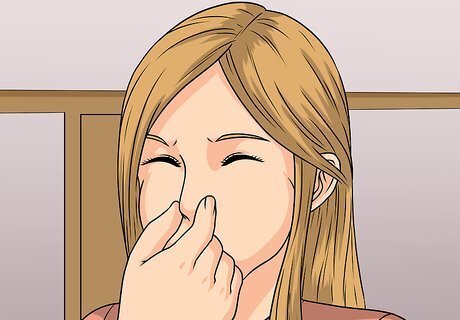
Use the Valsalva maneuver if you have pain due to airplane ear. If you’ve flown somewhere very recently, you may have an earache due to the rapid change in altitude. Try the Valsalva maneuver, where you pinch your nose shut and close your mouth, then pretend to blow your nose. At this time, you may feel some relief for your symptoms. To prevent airplane ear, try chewing gum while you’re flying.
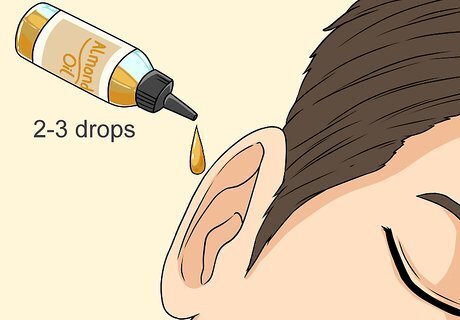
Soften your earwax with almond or olive oil if you have buildup. If you have an earache along with some difficulty hearing, squeeze 2-3 drops of oil into your ear. Do this twice a day and continue for a couple of days, or until your ears feel clearer. If you don’t notice any positive results within 2 weeks, talk to your doctor for help. While the results won’t be instant, you should feel better pretty quickly if extra wax build-up is causing your earache.
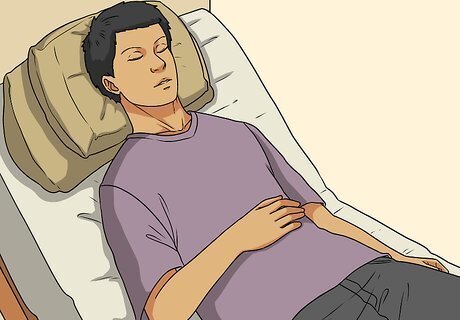
Sleep with your head propped up to get rid of the pain. Stack a pillow or 2 on your bed before you go to sleep. If your earache is caused by an infection, sleeping on an angle may help drain the extra fluid that’s in your ear. If you want to take a nap, consider taking a snooze in a recliner or reclining armchair.
Preventing Further Probles
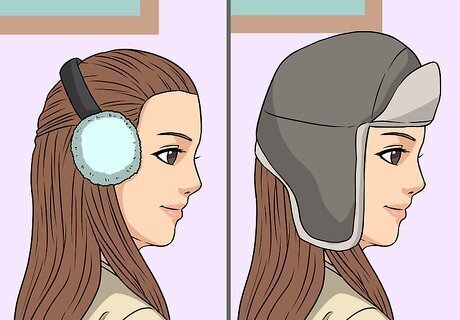
Protect your ears with muffs or a hat when going outside. Cold winds might make your ears ache a bit, so wear earmuffs or a warm hat as an extra protective layer. Make sure that your ears are completely covered and insulated before you head out.
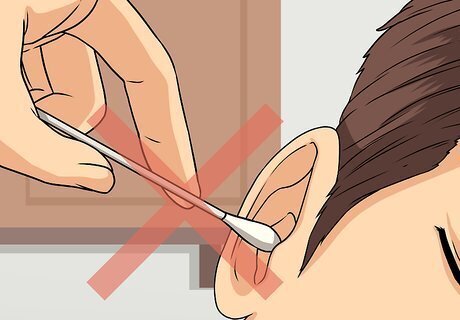
Don’t stick anything inside of your ears. Try not to stick cotton swabs or any other sharp or blunt object in your ear, as these will hurt and damage your ear more. If you think you’re suffering from an ear infection or another condition like swimmer’s ear, ask a doctor or ear specialist for help. If you stick a cotton swab in your ear, you’ll be doing more harm than good.
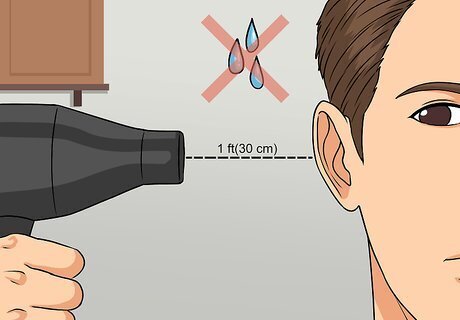
Avoid getting your ear wet. Use caution when taking a bath or shower, and try not to get any water directly into your ears. Dry off afterward, so no water is lingering in your ear. If you get water in your ears, use a towel to wipe them out carefully. You can also hold a hair dryer by your ear at low heat to evaporate any extra water. If you do this, be sure to hold the dryer at least 1 ft (30 cm) away from your wet ear. Keep it on for a few minutes and see if your ear feels any drier!
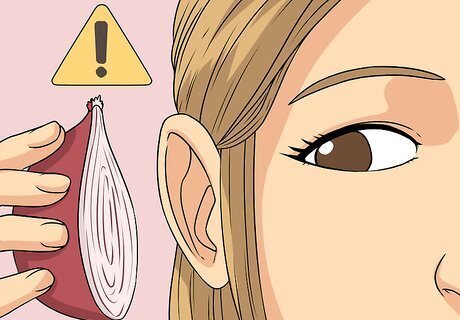
Use caution when trying any popular earache remedies. Always try medically-recommended treatments before consulting any natural, less verifiable methods, like using onions to get rid of an earache. Many of the treatments don’t have a lot of medical support or evidence, so you might have a lot of success if you use them. Instead, use recommended treatments, like a heating pad.
Seeking Medical Care
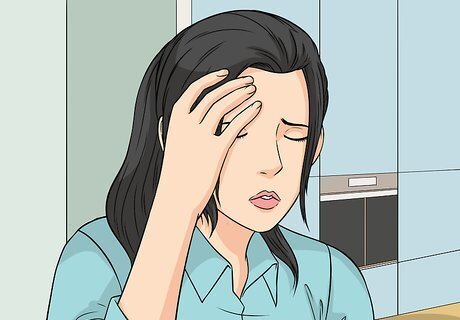
See your doctor if you or your child has a fever or severe symptoms. Earaches are very common, and you probably don't need to worry. However, you may need medical treatment if you have a fever or serious symptoms. Visit your doctor if you or your child show signs of a fever, feel hot and shivery, have an earache in multiple ears, feel fluids draining from your ears, feel something stuck in your ear, experience hearing loss, or have a sore throat and vomiting.
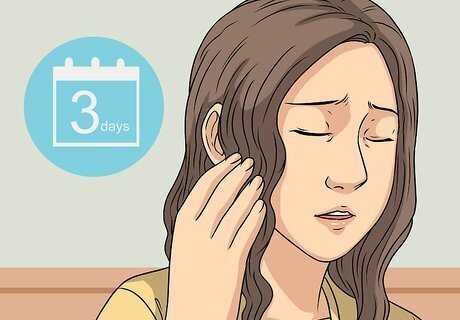
Get medical treatment for an earache lasting longer than 3 days. A minor earache should go away in a day or 2. If your earache persists, you likely need additional treatment. Visit your doctor or an urgent care center if you have an earache that doesn't go away. Your doctor will figure out what's causing your earache so you get the correct treatment. Talk to them about your treatment options, which might include natural treatments.Variation: If your child has an earache, it's best to take them to the doctor after 1 day or right away if they have any severe symptoms.
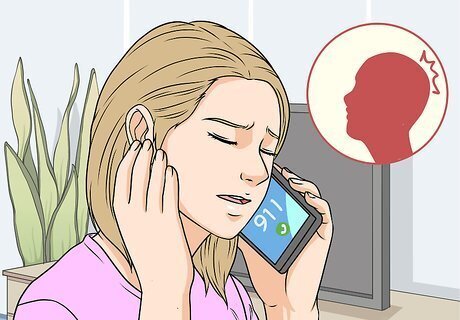
Seek immediate treatment if you've had an accident. Sometimes earaches are triggered by an accident, such as when you hit your head. If this happens, you need to see a doctor immediately. Make a same-day appointment with your doctor, go to an urgent care center, or visit an emergency room to get treatment. You may notice pain, buzzing, or ringing after an accident. Get these symptoms checked by your doctor.
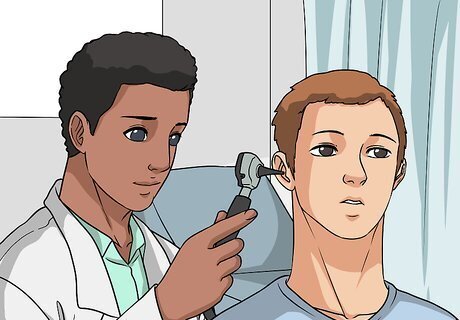
Consult an Ear, Nose and Throat (ENT) specialist for persistent earaches. In some cases, earache symptoms can last 1-2 weeks and may affect your ability to work, drive, eat, and sleep. If this happens, it's best to see an ENT specialist to find out exactly what's causing your symptoms. Get a proper diagnosis and talk to the ENT specialist about your treatment options. Your specialist may prescribe ear drops or other medications to treat your earache. For children, the ENT specialist may recommend putting tubes in their ears to drain away fluid that can cause infections. This is a common procedure that is fairly simple.















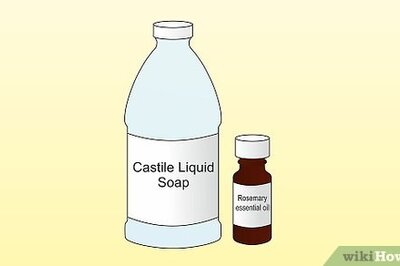


Comments
0 comment